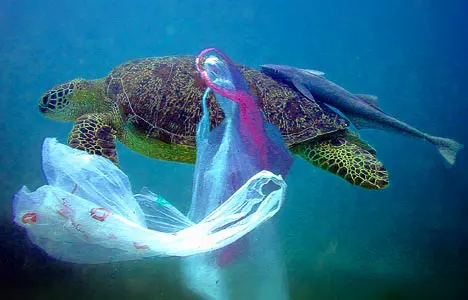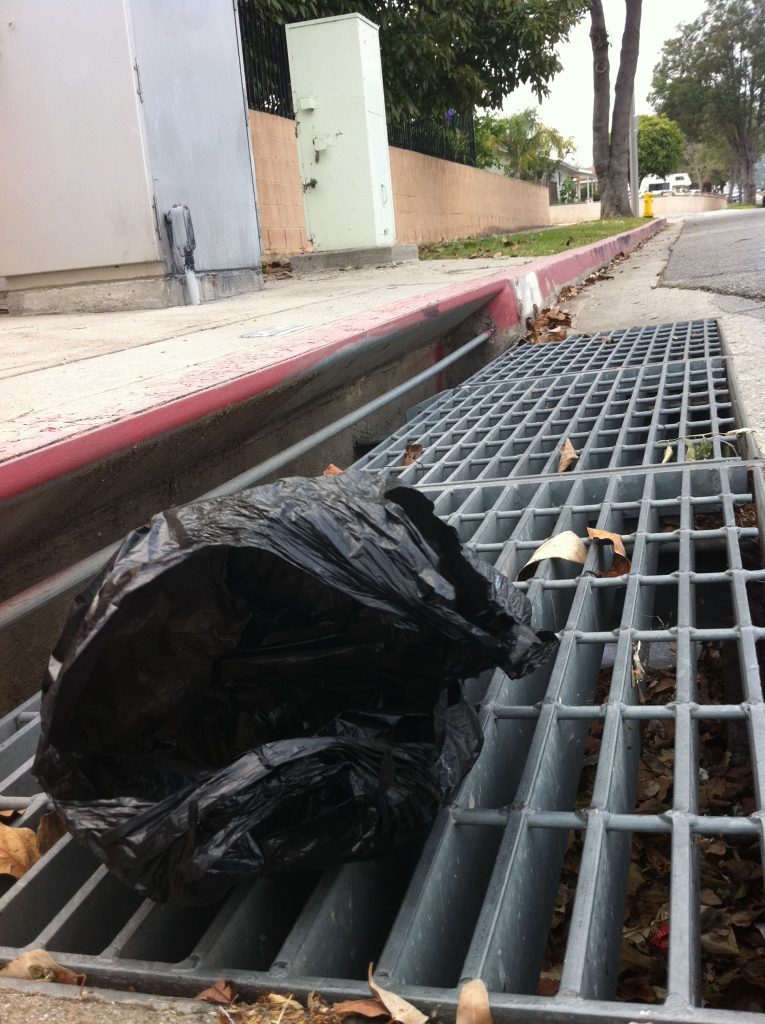Why Are Reusable Grocery Bags Good for the Environment? Here Are 5 Ways Reusable Grocery Bags Help the Environment

Once the bags touch down in a tree or in water they are a risk to animals that can become tangled in the bags or mistakenly eat the bags.
How One Simple Change Like Using Reusable Grocery Bags Can Have a Big Impact on the Environment
Most people understand that plastic bags are bad for the environment, but you may not understand the how and why. When people make the switch to reusable grocery bags they no longer have a need for disposable plastic bags. This lessened need equals less production, and using reusable grocery bags will help to right the wrongs that single use plastic bags cause. Here are five explanations that breakdown why plastic bags are bad for the environment and how reusable grocery bags help the planet.
Here Are 5 Ways Reusable Grocery Bags Help the Environment
-
Plastic Bags Use Up Nonrenewable Resources
Plastic bags are made from oil, which is a fossil fuel and a non-renewable resource. The process of manufacturing disposable plastic shopping bags also emits greenhouse gases, so by minimizing the need that lessens the production, there are more nonrenewable resources to use for other purposes and the environment is not flooded with the resulting greenhouse gases.
-
Reusable Bags Save Trees
Paper bags are destined for the same fate as disposable plastic bags when shoppers opt to carry their purchases home in reusable bags. By eliminating paper bags fewer resources are wasted. Paper bags can be made from virgin fiber or recycled content, the latter is less harmful on the environment; however, using neither is best. Publix, a large grocer headquartered in our home state of Florida, encourages the use of reusable bags and touts that more than a million paper and plastic bags are saved every day thanks to reusable bags.
-
Less Litter
Plastic bags have a tendency to end up as litter between the carelessness of shoppers who simply toss them away and also in part due to the lightweight construction that means a gust of wind can lift the bags from a garbage can, recycling bin or landfill and carry them off. Once the bags touch down in a tree or in water they are a risk to animals that can become tangled in the bags or mistakenly eat the bags. Plastic bag litter has also been the culprit of flooding as they clog drains important to proper drainage. Additionally, it only takes a teaspoon of water for mosquitoes to spread harmful West Nile Virus. Fewer single use plastic bags put into circulation reduces the amount of litter that ends up damaging ecosystems and posing a threat to wildlife and humans.
-
Reduce Greenhouse Gas Emissions

Plastic bag litter has also been the culprit of flooding as they clog drains important to proper drainage.
Reusable bags made from renewable resources help to prevent the buildup of greenhouse gases. When a reusable bag is made from materials like jute, cotton or bamboo, the environment reaps the benefits. These are renewable materials that have a quick growth rate, so the plants can be harvested and new crops planted in quick succession. Bamboo can be harvested without killing the plant, and the bamboo plant can continue to thrive and convert greenhouse gases into breathable oxygen with no interruption.
-
Recyclable Reusable Grocery Bags Minimize the Waste Stream
When a reusable bag is made from a material that can be recycled, like RPET which is made from plastic bottles, or even reusable bags made from cotton, the bag can be recycled when it becomes worn out. When materials are recycled they are broken down and turned back into something useful and more importantly they are kept out of landfills which are overflowing as it is.
Have You Gone Reusable Yet?
A small change like bringing your groceries home in reusable grocery bags can set off a chain of events that helps the planet is so many ways. Between the resources used and the process to create plastic bags, all the way through to the disposal and likelihood to become litter, single use plastic bags are bad news. Using reusable grocery bags can right the wrongs plastic bags are responsible for and help the environment heal.
Photos
- www.hsbsurfrider.org (turtle)
- www.futurity.org (grocery bag)






Pingback: Why OMG Means Go Reusable Now
i love your idea i am writing an essay can you please help me?
What help do you need?
Pingback: How Do Reusable Grocery Bags Help the Environment? - Egyptian Cotton Shop
Thank you for the wonderful information that will help me a lot to create some wonderful content and valuable information in human life